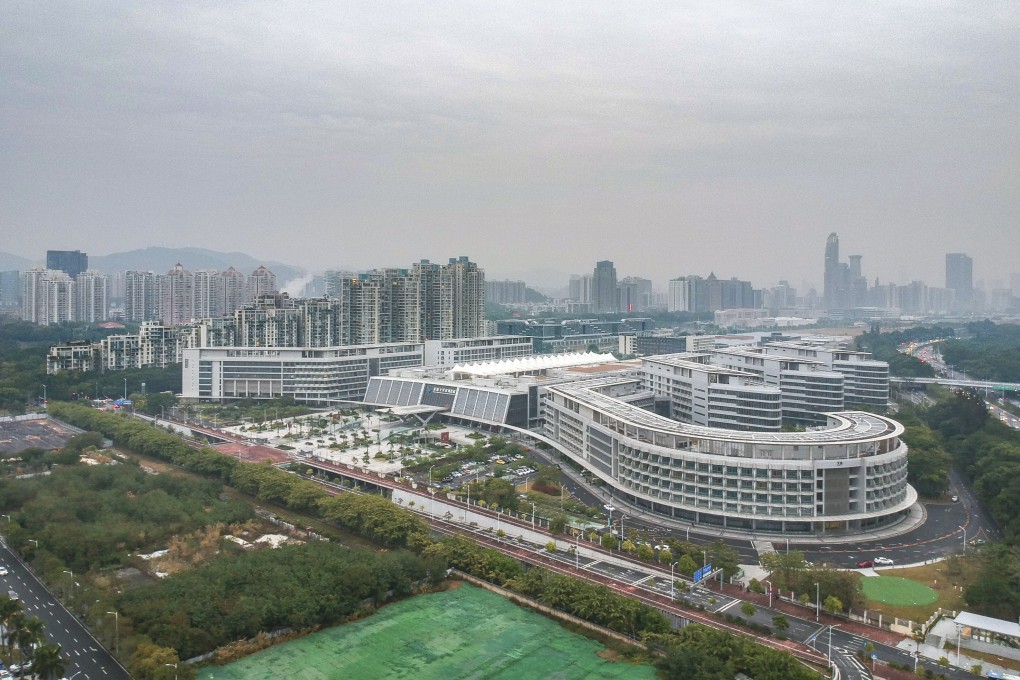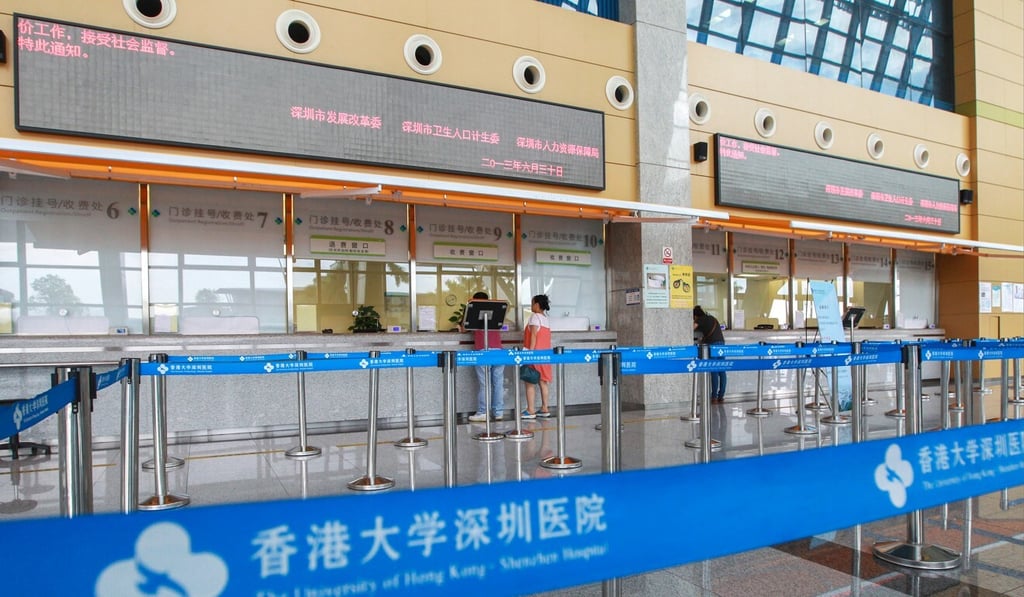Scheme allowing chronically ill Hongkongers living in Guangdong to seek cheap consultations at top university hospital set to begin
- Hong Kong government set up scheme to help those unable to return to city for appointments because of Covid-19 pandemic and quarantine rules
- From Tuesday, Hongkongers with follow-up appointments for chronic illnesses can apply for 100 yuan consultations at HKU-Shenzhen Hospital

Hongkongers living in Guangdong province can from Tuesday apply for subsidised medical consultations for chronic illnesses at a top university hospital in Shenzhen for only 100 yuan (US$15).
“The scheme aims to provide an alternative choice for medical services to the patients who are staying in Guangdong province and unable to return to Hong Kong due to the epidemic situation. It is up to the patients to decide whether to join the scheme,” the government said on Monday.
From Tuesday, Hongkongers living in Guangdong with follow-up appointments for chronic illnesses scheduled at specialist or general outpatient clinics under the Hospital Authority between February 17 this year and next July 31 could apply for the subsidised services at the HKU-Shenzhen Hospital.

The scheme was expected to last until the end of July or when quarantine arrangements lapsed.